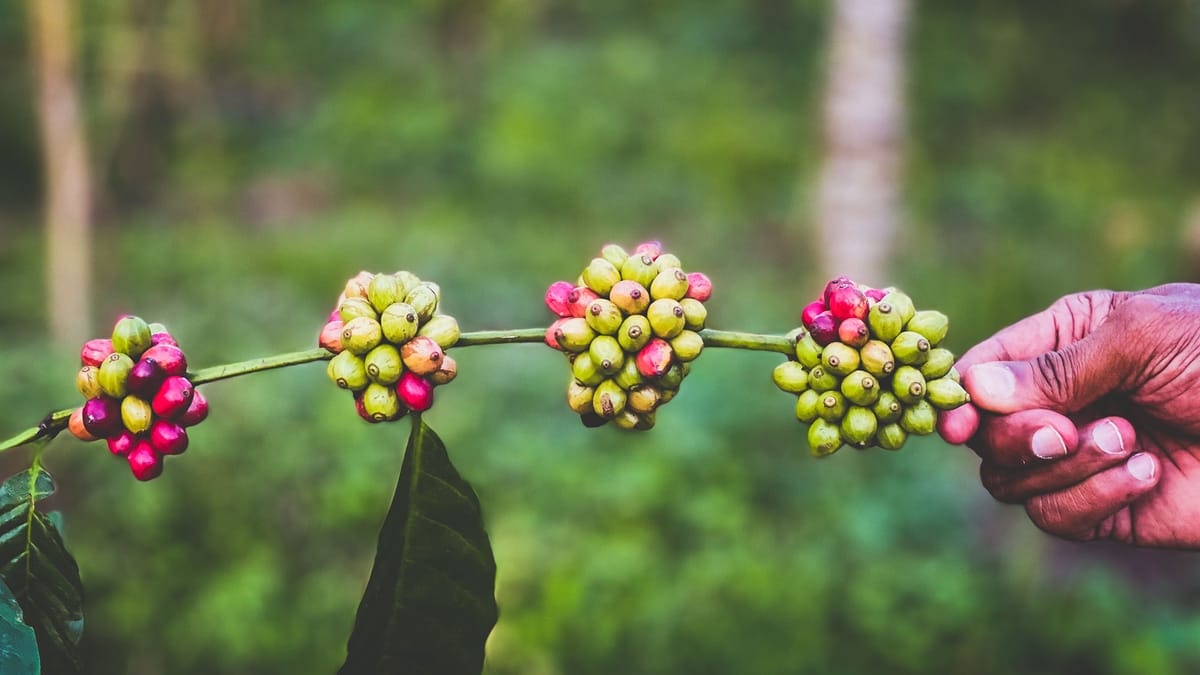Dealing With Disaster
The crew is doing damage control now, drawing back the Yara from the base of the pepper and pushing it toward the mulch around the cardamom.

I went to the plantation Saturday night and left Monday after lunch for Bangalore. The rains have finally stopped. There was bright sunshine all day, and at night the planets Venus, Saturn, and Jupiter came together and shone like large diamonds in the sky. The night was cool, and the day felt too warm, spoilt as we are by weeks of cool weather. Luca had a wonderful time prancing about the now-dry place, building an excellent appetite for his doggie meals.
I couldn't see much of the works going on in such a short time, but something that I saw disheartened me.
A month ago, we decided to use the excellent Norwegian fertiliser Yara for the fifth and final round of manuring for 2021. We worked out a mix of 2:1 of Yara Mila and Yara Liva. On Sunday, when we toured the plantation, we were stunned to see the green and translucent combination of Yara right on the pepper's stem, exposing the vine to scorching. The same was sprinkled way too far from the base of the cardamom plant, putting it way out of reach of the tender feeder roots — there's no way the plant will receive nutrition. The coffee plants had received similar treatment: the granules were sprinkled to no plan.
No reprimands were handed out. We issued a silent treatment, however. The crew is doing damage control now, drawing back the Yara from the base of the pepper and pushing it toward the mulch around the cardamom. They're spreading the granules for the coffee, keeping a short distance from the trunk, stopping where the branches end.
When I first arrived in these parts twelve years ago and acquired this plantation, the local folks handed me a fine book on the history of coffee cultivation in South India. Written in Kannada by H.L. Nagegowda, a civil servant, it is an excellent narration on the subject. The book ends with diary entries of colonial planters who struggled to make a success of their coffee estates. They appear to have been greatly exasperated by the locals. They complain about labour that came to work one day and disappeared en masse the next. One terse entry never leaves my memory, and this week it is too much on my mind: "I came out. A worker was idling on my path. I kicked him."
Back in my office in Bangalore, the outside temperature is 2°c cooler than at the plantation, whereas it should've been the reverse. Something is nagging at my mind. I'm asking why the memory of this diary entry from over a century ago should linger in front in my mind now, after this last visit to the plantation, ten years after I've read Nagegowda's book.
It takes conscious work every moment to stay modern in thought and action.